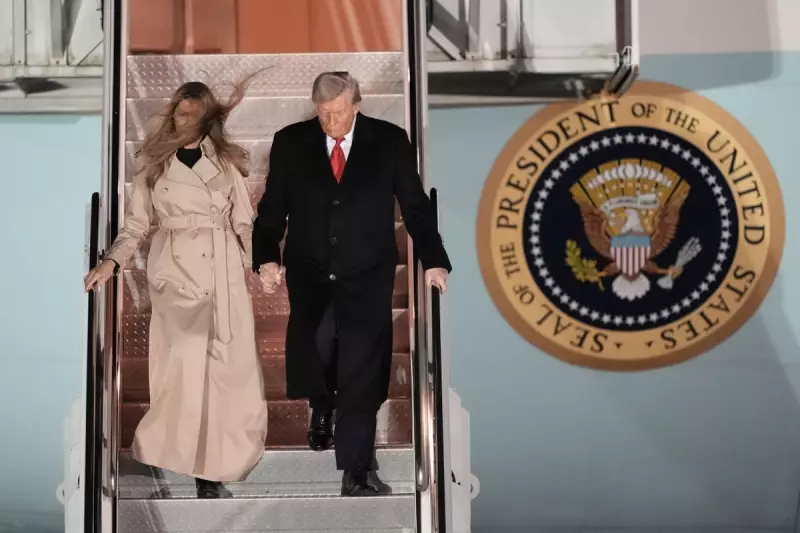
Former United States President Donald Trump is preparing for a significant private visit to the United Kingdom, with plans to engage with key political figures, including Brexit architect Nigel Farage. The trip, scheduled for early May, is already generating considerable attention in political circles.
The centrepiece of the visit will be a meeting at the exclusive Carlton Club in London, where Mr. Trump is expected to discuss policy and business matters with Mr. Farage and other influential British conservatives. This gathering signals continued alignment between Trump's political movement and certain factions within UK politics.
Windsor Welcome Amidst Political Sensitivities
The visit holds particular significance as it occurs during a period of heightened political sensitivity in Britain. With a general election looming on the horizon, the presence of such a polarising international figure is likely to spark debate across the political spectrum.
Security preparations are underway for the former president's stay in Windsor, Berkshire. Thames Valley Police have confirmed they are developing appropriate security plans in coordination with relevant agencies, though specific operational details remain confidential for security reasons.
A History of Controversial Visits
Mr. Trump's previous visits to the UK have been marked by both lavish ceremony and large-scale protests. His 2018 working visit included a meeting with the Queen at Windsor Castle, but was also accompanied by widespread demonstrations, including the flight of a giant 'Trump baby' blimp over Parliament.
This upcoming private visit differs from previous state occasions, reflecting Mr. Trump's current status as both a former president and the presumptive Republican nominee in the upcoming US presidential election. The timing and nature of the engagements suggest a focus on building international relationships ahead of potential political developments.
As arrangements are finalised, political analysts are watching closely to see how this visit might influence both UK political dynamics and transatlantic relations in the coming months.





